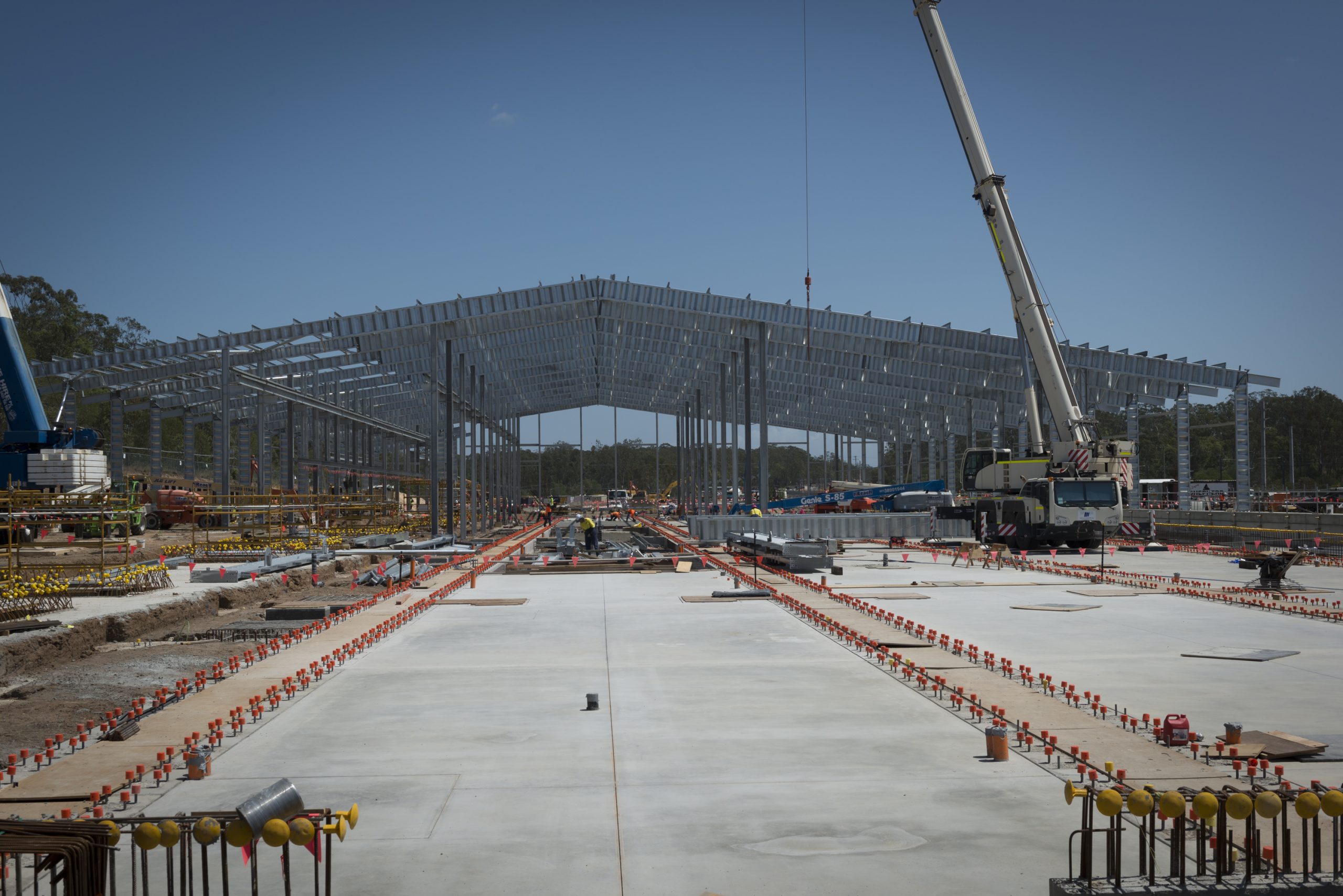Laing O’Rourke were awarded the contract to design and construct the new maintenance centre in January 2014. Initial enabling works were completed and construction of permanent works commenced in March 2014. When completed in 2016, the NGR fleet have been serviced, maintained and repaired in the new Maintenance Centre.
Depot Construction
Laing O’Rourke were awarded the contract to design and construct the new maintenance centre in January 2014. Initial enabling works were completed and construction of permanent works commenced in March 2014. When completed in 2016, the NGR fleet have been serviced, maintained and repaired in the new Maintenance Centre. The Maintenance Centre only service the NGR fleet.
The project generated a range of local job opportunities at the purpose-built Wulkuraka Maintenance Centre as well as for the train design and delivery phases. At project peak, Qtectic estimated a total of 514 full-time equivalent local jobs were created or maintained and more than 1,500 indirect jobs also were created.
Approximately 150 full-time new positions have been created at the Maintenance Centre to service the NGR fleet over 30 years, including engineers, trades people, cleaners, and ground staff.
The maintenance centre included specialist equipment necessary to support the 30 years of maintenance on the NGR fleet, including:
- a specialist maintenance building with dedicated wheel lathe and train lifting jacks
- signalling, yard control, and overhead power supply
- train cleaning and decanting facilities
- administration offices
- Supply of products and services to support maintenance of the NGR fleet and the maintenance centre equipment for a period of 30 years – eg air conditioner overhauls, bogie overhauls, seat repairs and refurbishment, workwear and protective equipment, etc
- Background support services for the permanent staff – eg catering facilities, car servicing and repairs, temporary accommodation, etc
Qtectic and Bombardier (now Alstom Transport Australia) have partnered with Queensland Universities, Rail Skills Australasia (RSA), local TAFEs, the Industry Capability Network (ICN) and local community groups to ensure the above opportunities are realised during the next two years of the project.

